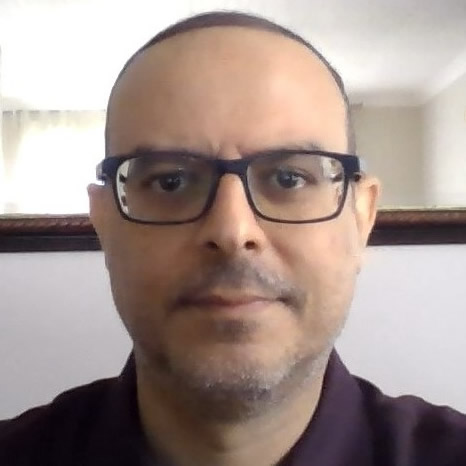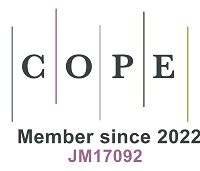Special Interview with Prof. Mohamed Abou-Elwafa Abdallah
On July 3, 2024, the Editorial Office of Journal of Environmental Exposure Assessment (JEEA) had the privilege of interviewing Prof. Mohamed Abou-Elwafa Abdallah, a leading environmental chemist at the University of Birmingham, UK. Prof. Abdallah's research focuses on the occurrence, fate, and human exposure risks of persistent organic pollutants (POPs) and emerging contaminants in the environment.
Prof. Abdallah shared that his interest in environmental science and analytical chemistry was sparked by the urgent need to understand the environmental fate and potential health impacts of synthetic and industrial chemicals. While pharmaceuticals and other compounds are designed to benefit human health, their persistence and potential toxicity after use warrant careful investigation. His research on compounds such as perfluorooctanoic acid (PFOA) and perfluorooctanesulfonic acid (PFOS) has enhanced understanding of their carcinogenicity and informed public health protection strategies.
By integrating field and laboratory studies with human exposure and pharmacokinetic modeling, Prof. Abdallah's team estimates internal chemical concentrations non-invasively, helping to predict health risks, differentiate hazardous substances, and guide risk management. His work also extends to emerging contaminants such as microplastics, employing advanced analytical techniques to evaluate their environmental behavior and human exposure pathways.
Emphasizing the societal value of environmental exposure research, Prof. Abdallah highlighted how such studies have influenced policy, legislation, and public awareness. He noted that environmental exposure assessment, though a specialized field, is crucial for protecting public health and advancing global environmental science. Regarding the growth of JEEA, he underscored the importance of maintaining scientific and ethical integrity, distinguishing the journal from predatory outlets, and leveraging Editorial Board engagement to enhance visibility and credibility.
Watch the video for Prof. Mohamed Abou-Elwafa Abdallah's expert insights:
Interview questions:
1. Can you tell us what inspired you to pursue a career in environmental science and analytical chemistry?
2. Can you explain the main objectives and findings of your recent article, "Carcinogenicity of perfluorooctanoic acid and perfluorooctanesulfonic acid"? How do these findings impact our understanding of human exposure to environmental pollutants?
3. How do you use various exposure and pharmacokinetic models to assess the risk of human exposure to emerging contaminants?
4. Are there any emerging trends or technologies in your field that you find particularly exciting?
5. What measures do you think should be taken to mitigate the risks associated with the contaminants you study?
6. As an Associate Editor of the journal Environmental Toxicology and Chemistry, do you have any suggestions for the continued development of JEEA?
Interviewee Profile:

Prof. Mohamed Abou-Elwafa Abdallah is a Professor of Environmental Chemistry at the University of Birmingham, UK, and a member of the Editorial Board of JEEA, specializing in environmental and analytical chemistry. His research focuses on the environmental fate, behavior, and human exposure to emerging contaminants such as pharmaceuticals, personal care products, microplastics, and flame retardants. He employs advanced analytical techniques, including mass spectrometry, to study the biotransformation and toxicokinetics of these pollutants. Prof. Abdallah has published more than 170 articles, which have been cited nearly 12,000 times, contributing significantly to the understanding of human exposure to environmental pollutants. His work has important implications for public health and environmental policy, particularly in relation to the United Nations Sustainable Development Goals, including clean water and sanitation, responsible consumption and production, and climate action.
Editor: Tracy Sun
Language Editor: Catherine Yang
Production Editor: Ting Xu
Respectfully Submitted by the Editorial Office of Journal of Environmental Exposure Assessment







